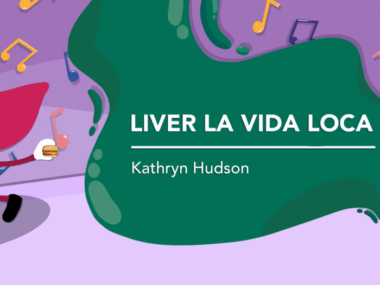In NASH, VK2809 treatment reduces liver fat, fibrosis: Phase 2b trial
Data showed therapy better than placebo at lowering liver fat after 3 months
Written by |

One year of treatment with Viking Therapeutics’ candidate VK2809 safely and effectively reduces liver fat content, damage, and scarring in adults with nonalcoholic steatohepatitis (NASH), a severe form of fatty liver disease, and fibrosis.
That’s according to data from a Phase 2b clinical trial, called VOYAGE (NCT04173065), that’s testing the oral therapy against a placebo in 246 adults with NASH and liver fibrosis confirmed by a liver biopsy.
The findings indicate the trial met its secondary goal of showing VK2809’s superiority at treating NASH without worsening liver fibrosis after a year. Previous topline data showed the therapy was better than a placebo at lowering liver fat after three months, achieving the study’s main goal.
“These data provide compelling evidence of VK2809’s efficacy in patients with biopsy-confirmed NASH and fibrosis,” Brian Lian, PhD, Viking’s CEO, said in a company press release, adding the results “further indicate VK2809’s best-in-class profile.”
The company plans to share VOYAGE’s full results in a future medical meeting.
Viking also expects to schedule an end-of-Phase 2 meeting with the U.S. Food and Drug Administration later this year “just to understand the current thinking on [future] trials’ design, as well as approvable [outcome measures] and then proceed from there,” Lian said during a company webcast.
NASH, recently renamed metabolic dysfunction-associated steatohepatitis, or MASH, occurs when excess fat is stored in the liver, causing it to become inflamed and stiff. Over time, this can lead to irreversible fibrosis, or cirrhosis, that can result in loss of liver function and other complications.
What is VK2809?
VK2809 is an orally available small molecule designed to bind to and activate thyroid hormone receptor beta (THR-beta), a protein that tunes sugar and fat levels in the liver and whose activity is impaired in NASH/MASH patients.
In a mouse model of diet-induced NASH, VK2809 lowered fat levels in the blood and reduced nonalcoholic fatty liver disease activity score (NAS) — indicating less disease activity.
NAS considers several measures of NASH/MASH, including steatosis, or fat accumulation, inflammation, and liver cell ballooning, which is a sign of cellular damage.
Data from earlier trials showed the therapy also safely reduced levels of fat in the blood of people with mildly high cholesterol, a type of fatty molecule.
As part of VOYAGE, patients were randomly assigned to receive oral capsules containing VK2809 at four different doses — 1 or 2.5 mg once daily, or 5 or 10 mg every other day — or a placebo for 52 weeks, or about a year.
Consistent with three-month topline data, patients on VK2809 continued to show significantly greater reductions in liver fat content on MRI scans relative to a placebo group after a year (36.6-55.3% vs. 12.8%).
Up to 87.8% of VK2809-treated patients had liver fat reductions of at least 30%, a level linked to better changes of improved liver health, compared with only 27.1% of those on a placebo.
When combining data from all VK2809 groups, the researchers found a significantly greater proportion of patients on the oral therapy saw their NASH resolve without fibrosis worsening (68.6% vs. 29.3%). NASH resolution was defined as a NAS indicating no worsening to two inflammation sites and no liver cell ballooning.
VK2809-treated patients were also significantly more likely to show less fibrosis without NASH worsening (51.1% vs. 34.1%) and to have both NASH resolution and fibrosis lessening (43.8% vs. 19.5%) after a year.
“Treatment with VK2809 led to statistically significant improvements across key [tissue-related measures], including fibrosis, which supports the value of thyroid hormone receptor beta [activation] as an important mediator of disease,” Lian said.
A year of treatment with VK2809 also significantly reduced cholesterol and other types of fat in blood, along with levels of atherogenic proteins, those that tend to promote the formation of fatty plaques in the large blood vessels, increasing the risk of cardiovascular events.
“These results support prior data demonstrating that VK2809 may offer a cardio-protective benefit,” Viking said in the release.
Consistent with topline data, VK2809 was generally well tolerated, with most treatment-related adverse events being mild or moderate in severity. Also, digestive problems like nausea, diarrhea, changes in stool frequency, or vomiting occurred as frequently with VK2809 as with the placebo.


